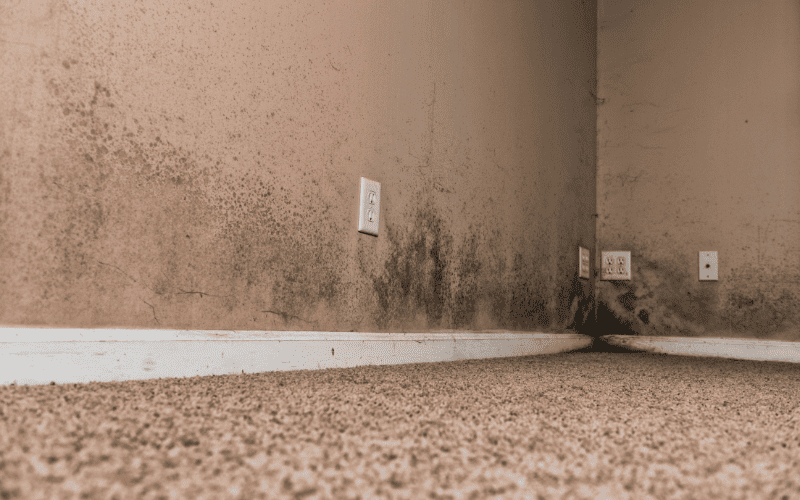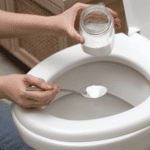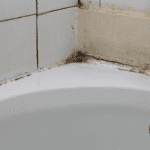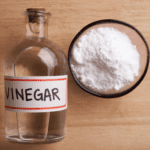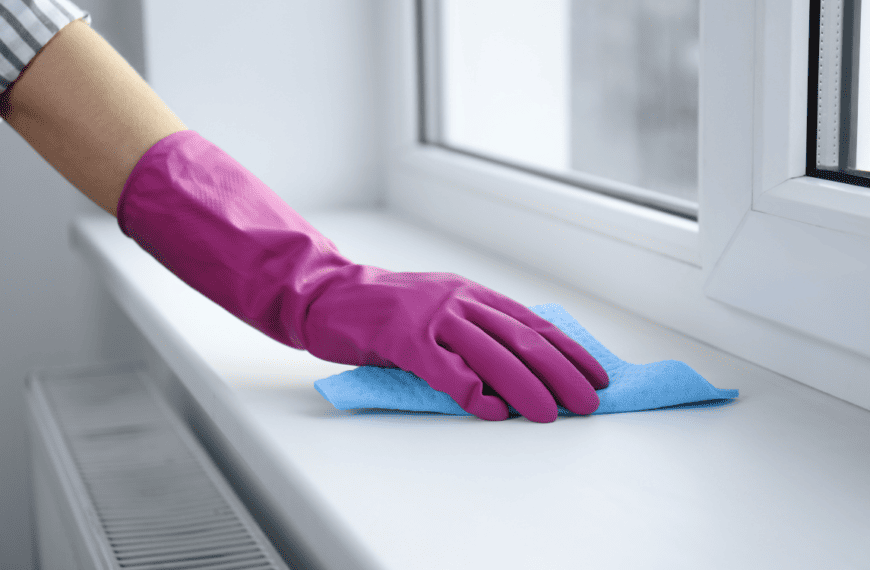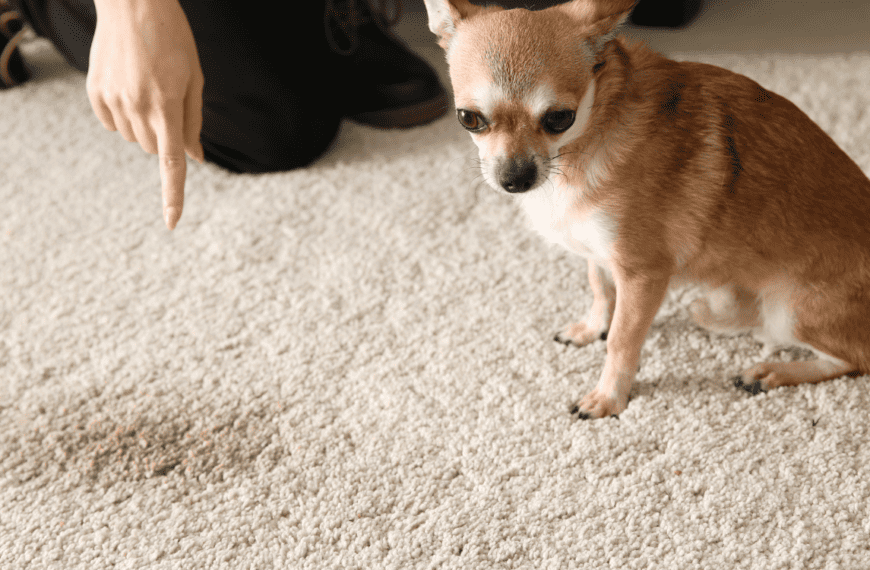The basement was a key reason I chose my current home, even though I wasn’t entirely sure why I needed one. I was just excited about the space’s potential. While it wasn’t 100% finished, it was roomy and had everything necessary to get started, whether I wanted another bedroom, a game room, or just an extra storage area.
But before I could think about what to do with it, I had to fix that stale odor to make the basement even a bit bearable.
Basement smells seem to come with the territory. Some estimates say up to 98% of basements experience water damage. And where there’s water, a nasty odor soon follows.
Fortunately, if you don’t like the smell, you don’t have to live with it. If you’re ready to get the absolute most from your home, I’ll explain how to eliminate a basement odor fast and for good.
Fast First Steps to Get Rid of Basement Odor
Finding and fixing the source of a musty smell is the ultimate goal when refreshing the indoor air quality in the basement. But that doesn’t mean you shouldn’t seek immediate relief when that stench hits your nostrils. While you’re working on removing the cause of the bad smells, try these easy air-freshening solutions to make the downstairs more comfortable.
Deodorize the Basement
You have several options to remove moisture and its associated musty smell. Commercial products are quick and easy to use, or you can try a few clever DIY odor removers.
Bowls of baking soda are classic household odor eliminators. Sodium bicarbonate can neutralize various smells and absorb moisture in the air. Bowls filled with white vinegar, cat litter, or coffee grounds can also reduce musty odors. If you need something that works a bit faster, try Ozium’s gel deodorizer or aerosol spray.
If you’ve followed our past articles on odor control around the home, you may already have activated charcoal packs in your house. A few reusable pouches placed or hung around the basement will absorb foul aromas more efficiently than anything.
When you have a wet dog smell from high in the basement, dehumidifying will eliminate moisture in the air and take the odors with it. A powered dehumidifier is one option, but you can save money with a product like DampRid. The containers use unique ingredients to pull moisture from the air and refresh the room’s smell.
Tip: Ice-melting salt makes a low-cost stand-in for DampRid and other non-powered dehumidifiers. Products like Snow Joe consist primarily of calcium chloride, a hygroscopic substance with a superior moisture absorption capability.
A powerful desiccant, CaCl2 can pull up to three times its weight in water from the air, even when the relative humidity is in the safe zone below 50%. Pour some road and sidewalk salt containing CaCl2 into a bowl to leave in your basement. Alternatively, you can make a homemade dehumidifier from a couple of buckets.
Air Out
Getting the old musty air out of the house with ventilation is a quick way to improve the basement smell. Opening windows will get the air circulating. Let in as much sun as possible. UV light can control bacterial colonies in dust and kill mold spores, helping you reduce the musty basement odor quicker.
Use Small Appliances
For more active air recycling and deodorizing, you should invest in either a dehumidifier or an air purifier. A dehumidifier is already a no-brainer if moisture is a recurring issue in your basement. As it lowers the humidity level, it will also remove the musty smell.
An air purifier is a sort of antithesis to a dehumidifier. While it won’t extract basement moisture, it will suck in contaminants like dust and mold spores with HEPA filters, activated carbon, and other odor traps. It cleans the air to remove basement odors. With some separation between the appliances, you can quickly eliminate odors and moisture by using an air purifier and dehumidifier together.
Eliminate Musty Smells at the Source
Deodorizing often only puts a Band-Aid on the overarching problem causing the basement odor. To keep your basement smelling pleasant, you must clean, disinfect, and protect against future smells by preventing moisture damage and pest infiltration.
Check for Mildew and Mold Growth
Mildew, mold, and general excess dampness in the basement cause musty smells. Look for mold growth along basement walls, floors, and ceilings. If you have stored materials downstairs, like paper, cardboard boxes, and fabrics, mold may also be present in these items. Clean and inspect everything in the basement to find the source of the musty odor. Once you locate the mold, you can trace it to the moisture infiltration you must fix.
Inspect Plumbing, Drains, and Appliances
Leaky pipes and appliances could be a source of internal water damage causing mold and mildew. Inspect exposed pipes, water heaters, and laundry equipment for damage and leaks that could land in the basement.
If you smell sewage, it could be from a plumbing issue in the basement or overhead, such as a busted pipe from an upstairs bathroom. It could also be an issue with basement drains in the floor or sinks. If the water in a drain’s p-trap sits for a long time without activity, as is common in an unused basement, the water in it could evaporate to the point that it opens the pathway to the sewer, allowing nasty smells into your basement.
Although they’re essential in removing water, sump pumps can sometimes be a source of basement malodors. For instance, if sewage enters surrounding groundwater, it will often reach the pump and stink up the space. Odors can also occur if the sump pump dries out or stops working.
Look for Poor Drainage and Moisture Infiltration
Exterior water infiltration is the most common cause of persistent basement moisture. Poor drainage will direct water toward the basement. Cracks and gaps in the foundation and improper seals around doors and windows can let in water, especially during heavy rain.
Damp areas where walls meet the floor can help you pinpoint the source of the musty smell. Inspecting the foundation’s exterior for drainage issues like blocked gutters or inward-sloping ground will show you which repairs to make. Walk around the perimeter during a rainstorm to see if you can spot any pooling or leaking areas to address.
Check for Pests or Dead Animals
Pest infestations invite unique foul odors into several areas of the house. Since it’s usually more secluded and damp, the basement is often a prime location for insects and rodents to set up nests. Awful smells will accumulate as they urinate and defecate around the space. And when one dies, the dead mouse smell can be even more nausea-inducing.
Look for common signs of pest activity when you notice a rotten or musky smell in the basement. You may find small droppings and urine patches. Chewed materials, such as cardboard or wood furniture, are also common. After identifying the problem, you can assess the interior and exterior for access points.
How to Clean Mold and Mildew
Cleaning mold and mildew is crucial if you want to protect your home’s structure and your health. Dehumidifying will halt the growth, but it won’t permanently solve the issue. Removing the existing mold and spores is the only way to ensure the problem won’t come back even as the humidity rises.
Wash moldy clothes and other fabrics in hot water with oxygen bleach, such as OxiClean, to remove the stains and kill the spores. To clean visible mold on basement walls, ceilings, and floors, mix a solution of 1 part bleach to 16 parts water in a spray bottle or bowl. Wet the moldy surface with a sponge, and scrub stubborn spots with a stiff cleaning brush.
Products I Recommend
When to Call a Professional: Although you can often clean minor growth, mold remediation services will be necessary in several instances. Call a pro if the mold has spread beyond the basement or covers an area larger than 10 square feet. Avoid dealing with toxic mold by yourself, and never try to clean mold if you have a health condition it might affect.
How to Repair Leaks and Plumbing Odors
A leaking pipe or busted sump pump causing a bad odor will need a repair and could require a plumber, depending on its severity and your DIYer skills. But the plumbing problem is sometimes simpler to fix than swapping out pipes.
If the smell comes from an empty p-trap in a floor drain, you only need to refill it with water to close the line to the sewer. Meanwhile, condensation on cold pipes can drip and create damp patches that invite mold. Wrap these in foam pipe wrap, taping off seams with duct tape to prevent moisture penetration.
How to Deal With Pests
In most cases, if you want complete pest eradication, skip the DIY methods and go straight to a professional. You can try baits, traps, and foggers if you want. But unless you eradicate the entire infestation, pests will reproduce quickly enough to bring the problem back in no time. I would recommend you don’t waste your money or risk your family’s safety with incomplete solutions and call an expert instead.
Once you get rid of the pests in the basement causing the odors, you can handle preventative steps. Seal off entrances like cracks or gaps in the foundation, outside walls, and eaves. Trim back vegetation and remove brush. Doing so will reduce hiding spots for pests trying to get into the basement while potentially reducing the amount of water that collects in the soil near the house.
How to Deal With Window Wells Debris and Water Build-Up
Basement window wells often collect and direct water toward the window and into the house. Leaves and other built-up debris can block drainage systems in wells, causing water to enter the house. Check and clean the drain and window well frequently to prevent clogs. Filling the well with several inches of gravel up to the sill will allow water to drain away steadily.
When to Call a Professional: If you clean and maintain your window wells and continue having issues with water entering, you may need a professional to replace them or the drain. It often requires significant digging around the foundation and possibly work on the drain line, which may be more than you’d want to handle by yourself. The window may also have some damage that allows water to enter, requiring a replacement.
How to Deal With Drainage Problems
Drainage repairs around the foundation are often the work of a professional. Groundwater seeping from below or the sides of the basement will need redirection. You would have to install a drain pipe heading to a sump pump to flush away excess water or apply vapor barriers or exterior membranes to block moisture from entering.
The best solution will depend on the severity of the issue. Consult with a few foundation and waterproofing specialists to help you make the right decision and get the best deal. The most effective fixes can cost several thousands of dollars, but they will permanently fix the moisture problem.
How to Prevent Basement Odors
Even with your grading, drainage, and pest control problems resolved, basements are prone to moisture and subsequent odors. It takes extra effort to keep bad smells from reoccurring. After making the necessary basement repairs, here are a few preventative steps you can take.
Regular Cleaning and Maintenance
Cleaning and upkeep are the best ways to remove growing odor sources and identify problems early. Make it a point to dust, sweep, and tidy your basement every week or so, and include a deep clean as part of your spring cleaning to-do list.
Proper Ventilation
High humidity and condensation are common in basements, necessitating adequate airflow to keep the air fresh and dry. Maintaining proper ventilation is essential. If you have central A/C downstairs, ensure the intakes have clean filters at all times and the vents are in good condition.
You may have to add ventilation. Windows or vents are sometimes easy to add for natural airflow. Many companies offer ventilation installations specifically for basements that can actively move air around. If you don’t have any way to ventilate and don’t want to spend a bunch of money on an installation, you may find an air purifier to be a good substitute.
Products I Recommend
- Winix 5500-2 Air Purifier: Smart Sensors measure and maintain air quality while you’re away. The low-decibel unit has a HEPA filter, washable carbon filter, and PlasmaWave technology to trap pollutants and odors.
- LEVOIT Smart WiFi Air Purifier: LEVOIT’s smart air purifier is easy to control no matter where you are in the house. The monitor ensures constant air quality, with a 3-stage filter capturing most contaminants in the average basement.
Use of Dehumidifiers
Basement humidity should stay below 60%. Mold and mildew growth can only occur with excess moisture. Run a dehumidifier to keep your basement at the optimal relative humidity of around 40–50% to prevent mold from spreading.
Products I Recommend
- hOmeLabs Dehumidifier with Pump: The hOmeLabs Energy Star dehumidifier is available with a tank or a pump. With the pump, you can send water directly outside as you dehumidify. You get continuous humidity control without needing to constantly empty a water tank.
- Vremi Dehumidifier: The Vremi dehumidifier only uses a water storage tank, but it’s an efficient option for dehumidifying a basement. The Turbo mode moves air faster to quickly dry the basement.
Fix Gutters and Grading
Even if you need a waterproofing pro for ongoing moisture problems, you can reduce moisture by resolving some of the drainage issues outside your house. The two concerns here are:
- Keeping your gutters clean and in good repair
- Ensuring the ground slopes away from the foundation
You can often fix minor grading problems yourself by adding soil near the house. The general rule is that the ground should drop six inches within the first ten feet moving away from the house. For gutters, maintain an annual cleaning schedule. Fix or extend downspouts to push water as far from the home as possible.
Sealing of Cracks and Gaps
Sealing exterior wall cracks in the basement’s foundation will stop pests and moisture from entering. For effective waterproofing, you can use polyurethane caulk and hydraulic cement to create a dependable seal in gaps.
Prevent Basement Windows from Leaking
Cleaning window wells and fixing drainage will stop excess water from reaching the window. If the seal around the window is damaged, flexible silicone caulk around the frame can create a watertight barrier.
Proper Storage Techniques
Cardboard storage boxes in the basement are begging for trouble. Water leaks, excess humidity, and pests can quickly destroy them. Moldy and rotten smells will soon follow, and you can bet that anything in those boxes won’t be in good condition either.
Instead of storing materials in cardboard, use plastic storage containers. They won’t rot or collect mold and will save your belongings if the basement floods. Your belongings will stay dry to further prevent musty smells. Plus, pests won’t be able to get into them.
FAQs
What Are Some Natural Alternatives to Bleach for Killing Mold?
If you’re worried about the health hazards of using bleach, there are safer household mold killers to try in the basement. Standard distilled white vinegar is an excellent choice, as is hydrogen peroxide.
Pour either option undiluted into a spray bottle, and saturate the mold stains. Let the cleaner sit for the recommended dwell time (one hour for vinegar, 10 minutes for hydrogen peroxide) before scrubbing.
How Often Should I Check My Basement for Signs of Moisture and Mold?
Frequent checks are crucial if basement moisture is a recurring issue. But if you maintain an appropriate cleaning schedule, you can take the opportunity to check for leaks and mold growth. Inspect for water infiltration after hard rains and even double-check after a day or two for high humidity and early signs of mold.
Can I Use Essential Oils to Help Eliminate Musty Basement Odors?
Essential oils are not just effective, they’re a delightful and all-natural solution to transform the scent of any room, including your basement. While you might still need to incorporate other deodorizing solutions for a complete refresh, there’s nothing quite like swapping out a musty, stale odor for your favorite fragrance. It’s not just about eliminating unwanted smells, it’s about creating an inviting atmosphere that makes every descent into your basement a sensory pleasure.

